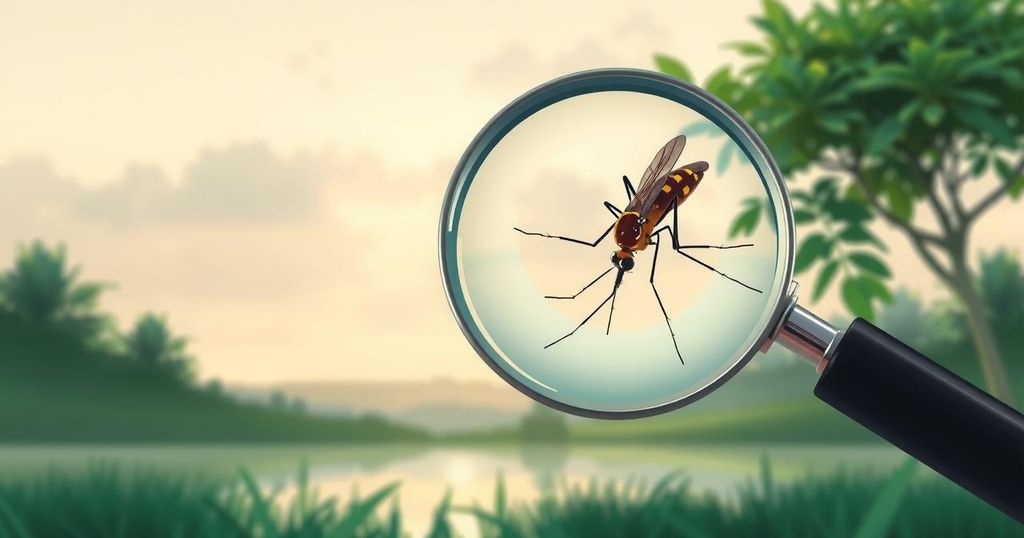The conflict in Ethiopia’s Oromia region has resulted in a tragic rise in malaria cases and deaths, with over 7.3 million cases reported in 2023 alone. The ongoing warfare disrupts healthcare services, leading to a critical shortage of medications. The intertwining effects of climate change further exacerbate the risks associated with malaria, prompting experts to warn of a looming humanitarian disaster.
Lema Tefera shared the heartbreaking account of losing four of his children to malaria within a month, a tragedy attributed directly to the ongoing conflict in Ethiopia’s Oromia region. In an interview, he lamented the absence of malaria medications due to the hostilities in his village. The World Health Organization reports that Africa is responsible for around 95 percent of the estimated 250 million malaria cases reported globally each year, with the death toll surpassing 600,000.
Experts assert that the crisis in Oromia is intensifying, driven by a protracted conflict between government forces and the Oromo Liberation Army since 2018, which has critically undermined healthcare access. According to medical professionals and humanitarian organizations, the surge in malaria fatalities stems from a lethal combination of conflict and climate change. Lema, a subsistence farmer, voiced that he has been adversely affected alongside many others in the rural community of Lalistu Lophi.
The scale of malaria’s impact in Ethiopia is alarming, with over 7.3 million malaria cases and 1,157 deaths reported from January to October 2023 by the World Health Organization. Nearly half of these incidences occurred in Oromia, where health services have been severely compromised. Gemechu Biftu, of the Oromia Physicians Association, indicated that organized distributions of anti-malarial drugs have been interrupted, exacerbating the crisis.
The ongoing conflict has made access to vital medical care increasingly difficult. Healthcare professionals like Legesse Bulcha from Nejo General Hospital report that malaria now constitutes a staggering 70 percent of treated patients, a significant rise from previous years. Furthermore, climate change plays a critical role, leading to conditions that favor the proliferation of malaria-carrying mosquitoes. Recent observations indicate malaria outbreaks are occurring even during traditionally dry seasons.
Rachelle Seguin of Doctors Without Borders has noted that the malaria situation in Ethiopia has reached unprecedented levels in 2024, influenced by rising temperatures and ongoing warfare. With the rainy season on the horizon, there are fears among experts that the situation could worsen. Additionally, a recent funding freeze from the U.S. government has significantly hampered resources crucial for combating infectious diseases.
Dr. Nuredin Luke expressed concern regarding the implications of the reduced aid, which was previously vital for malaria control initiatives. The United States, once responsible for approximately 40 percent of the global malaria research budget, now faces uncertainty regarding future funding. Lema, deeply affected by the loss of his children, struggles with depression and relies on family for sustenance, unable to support his family or work his farm.
The ongoing conflict in Ethiopia has led to a catastrophic rise in malaria cases and fatalities, particularly in the Oromia region, where essential healthcare services have collapsed. Climate change and uninterrupted civil strife have created a dire situation, exacerbated by significant funding cuts for health initiatives. With predictions that the situation may worsen, the humanitarian crisis surrounding malaria continues to deepen, having a devastating impact on communities such as that of Lema Tefera.
Original Source: newscentral.africa




